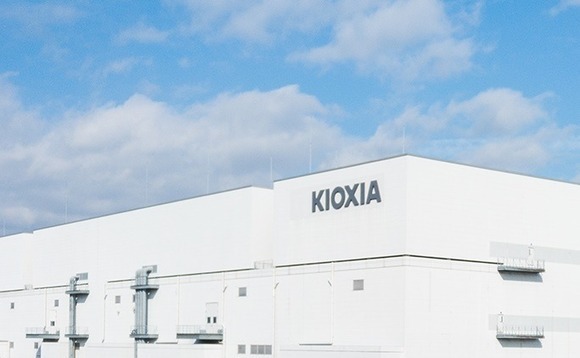
PE-owned Japan flash memory player postpones IPO

Kioxia Holdings, the Japanese flash memory business that a Bain Capital-led consortium acquired from Toshiba two years ago for an enterprise valuation of JPY2 trillion ($18.7 billion) has pulled the plug on its Tokyo IPO.
The company was reportedly looking to raise up to JPY334 billion through the offering. Toshiba said in June that it was exploring ways to fully exit its 40.2% stake in Kioxia, without specifying the likely exit route or timing. At the time, an IPO at a valuation of $32 billion was suggested. Now the plan has been put on hold, with Kioxia saying it is "not in a rush" to go public.
"While we received significant interest from many investors, the lead underwriters and Kioxia do not believe it is in the best interest of current or prospective shareholders to proceed with the IPO at this time of continued market volatility and ongoing concerns about a second wave of the pandemic," Nobuo Hayasaka, the company's president and CEO, said in a statement.
The original buyout remains Asia's largest-ever PE-backed transaction by enterprise value. Bain brought Innovation Network Corporation of Japan (INCJ), Development Bank of Japan (DBJ), Apple, Dell Kingston, Seagate, and SK Hynix into its investor group. They took 49.9%. Toshiba invested JPY350.5 billion in the acquisition vehicle to retain an equity interest, while Hoya Corporation, another Japanese technology player, purchased 9.9%.
The deal was announced in 2017 and closed a year later after a protracted approvals process. Initial resistance came from Western Digital, which operates a Nand flash manufacturing plant as a joint venture with Toshiba. A legal challenge was eventually abandoned. Additional complications arose over regulatory approval from China, the largest global consumer of memory chips.
Previously known as Toshiba Memory Corporation (TMC), Kioxia invented the first Nand flash memory in 1987. It is the second-largest manufacturer of this kind of memory, trailing Samsung, and its factory in Yokkaichi is the world's largest. The facility – run with Western Digital – contains five fabrication plants and produces flash memory and solid-state drives used in data centers, smart phones, PCs, and electronic devices.
Sales reached JPY987.2 billion for the 12 months ended March, down from JPY1.26 trillion the previous year. The company swung from a net profit of JPY60.6 billion to a net loss of JPY166.7 billion. It warned that the economic fallout of COVID-19 would likely lead to reduced smart phone sales, partly offset by rising demand for chips used in PCs and data centers.
Latest News
Asian GPs slow implementation of ESG policies - survey
Asia-based private equity firms are assigning more dedicated resources to environment, social, and governance (ESG) programmes, but policy changes have slowed in the past 12 months, in part due to concerns raised internally and by LPs, according to a...
Singapore fintech start-up LXA gets $10m seed round
New Enterprise Associates (NEA) has led a USD 10m seed round for Singapore’s LXA, a financial technology start-up launched by a former Asia senior executive at The Blackstone Group.
India's InCred announces $60m round, claims unicorn status
Indian non-bank lender InCred Financial Services said it has received INR 5bn (USD 60m) at a valuation of at least USD 1bn from unnamed investors including “a global private equity fund.”
Insight leads $50m round for Australia's Roller
Insight Partners has led a USD 50m round for Australia’s Roller, a venue management software provider specializing in family fun parks.








